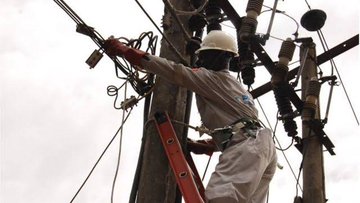Nigeria has overtaken the Democratic Congo of Congo as the worst country with the highest number of people that have no access to electricity supply.
This was disclosed by World Bank Group officials in a virtual meeting with power reporters during the Power Sector Recovery Programme held in Abuja.
The group revealed that about 25% of the country’s population don’t have access to power supply. It added that electrification in the country has been growing at a snail’s pace of 1.1% since 2010 and has been unable to match the 3% yearly growth of Nigeria’s population.

As it stands, 85m Nigerians which stands for 57% of the population have no access to electricity.
The group said;
Nigeria now has the largest number of unelectrified people globally and the trend is worsening; of the electrified, the supply is very unreliable with widespread blackouts.
“Nigeria now has 25% more unelectrified people than the 2nd most unelectrified country (DRC – in absolute terms).”
Ashish Khanna, the World Bank Group Practice Manager for West and Central Africa Energy added that;
The power sector is operationally inefficient with unreliable supply exacerbated by high losses and lack of payment discipline.
“Businesses in Nigeria lose about $29 billion annually because of unreliable electricity while Nigerian utilities get paid for only a half of electricity they receive.”
However, the group said its PSRP intervention is helping to change the electricity situation.
It revealed that $1.25bn between June 2020 and February 2021 was approved to reset the power sector.
The bank also said Nigeria must connect over 1 million households yearly if it is willing to achieve Universal access to electricity by 2030.
While working to achieve the target, it must also devise ways to make sure that customers pay for what they consume.















